There is a battle unfolding in the heart of Punjab. Far away from the hustle and bustle of city centres, some of the most powerful people in the country have for the past few years been embroiled in a conflict that is seemingly over nothing more than the relocation of five sugar mills from central Punjab to South Punjab.
That is until now. Almost overnight the conflict seems to have ended, cases filed earlier have been withdrawn, and actions that had once meant the raising of war banners are now being ignored like a bad habit.
So what is going on? The reality is that these five mills represent control of the vast swathes of agricultural lands in the Punjab that are central to the economy and people of this country. And inextricably intertwined with this sugar economy are the interests of some of the most politically prominent families in the province.
The five mills in question, namely Haseeb Waqas Sugar Mills, Chaudhry Sugar Mills, Abdullah Yousaf Sugar Mills, Abdullah Sugar Mills, and Ittefaq Sugar Mills, are all either owned directly by the Sharif family or by their extended relatives. Back in 2016, these mills relocated from different locations in central Punjab to districts in South Punjab near Muzaffargarh after getting special permission from the Punjab government.
The mill owners wanted to move from the water scarce central Punjab region to the much more fertile lands of South Punjab. The permission had to be taken because the government had policies against the construction of new sugar mills, but getting it wasn’t a problem largely because Punjab was then under the rule of Chief Minister Shehbaz Sharif.
And on this basis of alleged political favourtism the relocation of the five mills was challenged in the Lahore High Court (LHC), which quickly put a halt to the operation of these mills. Among the many complainants that took the case to the LHC were JDW Sugar Mills and Ashraf Sugar Mills — owned respectively by Jehangir Khan Tareen and Chaudhry Zaka Ashraf. Tareen at the time was General Secretary of the PTI and Ashraf was and continues to be a PPP leader who is also a close personal friend of former President Asif Ali Zardari.

The fact of the matter is that Pakistan’s sugar industry is possibly the most powerful and influential lobby in the country. Almost all of the 91 sugar mills in the country are owned by household name politicians and their families, all of whom belong to different political parties. For the past six years, this powerful faction has been busy infighting because of politics. But a lot has changed in the past year. The disintegration of the PTI, the ouster of Imran Khan, and the alliance of the PPP and the PML-N has meant that once where the sugar lobby was divided by politics, it has now once again been united by it. The PPP and the PML-N are coalition partners and Jehangir Tareen’s newly formed IPP seems to be the league’s electoral partner in the Punjab. This has allowed all of these sugar barons to let by-gones be by-gones.
Lost somewhere in the middle of all this is the reasoning behind why the sugar mills were not allowed to relocate in the first place — the concerns of the textile industry and the fate of the fast disappearing cotton crop in Pakistan. The story is long, intricate, and complicated. To get to the bottom of it, Profit conducted an in-depth investigation involving analysis of court documents, interviews, and digging through financial statements to get to the bottom of the story. And the best place to start is the beginning — back in the 1980s when the sugar baron first roped the political elite.
The rise of the sugar barons
Much like many other industries in the country, partition meant a new beginning. In August 1947, there were only two sugar factories in the newly minted state of Pakistan. Most of the sugar mills set up in the colonial era were on the Indian side of the border, and the two in Pakistan were not nearly enough to meet domestic supply.
This was an opportunity. For the first few years of the country’s existence sugar had to be imported which was a major drain on a new state with very little trading power. At the same time, sugar was a high-demand commodity in the subcontinent and plenty of sugarcane was grown in the new state. The 1947-48 production numbers for sugarcane in Pakistan were over 54 lakh tonnes. Nearly 75% of this sugarcane was grown in the Punjab. Since at the time the country’s landed elite were also its political elite, it became clear that many of these landowners that were growing sugarcane would now set up sugar mills, process the sugar and make more money.
The experiment was successful. Keeping in view the importance of the sugar industry, the government setup a commission in 1957 to frame a scheme for the development of the sugar industry. In this way the first mill was established at Tando Muhammad Khan in Sindh province in the year 1961. By 1962 there were six mills in the country and in 1964 the Pakistan Sugar Mills Association (PSMA) had been established and almost every single sugar mill in the country had a member of parliament on its board of directors.
The interests of the sugar industry were disproportionately represented in the legislature and the political patronage that came with this allowed the industry to boom. According to a report of the Competition Commission of Pakistan, the number of mills increased to 20 by 1971 during a period when cane cultivation was incentivized in Sindh through establishment of sugar mills. The size of the industry further increased to 34 by 1980.
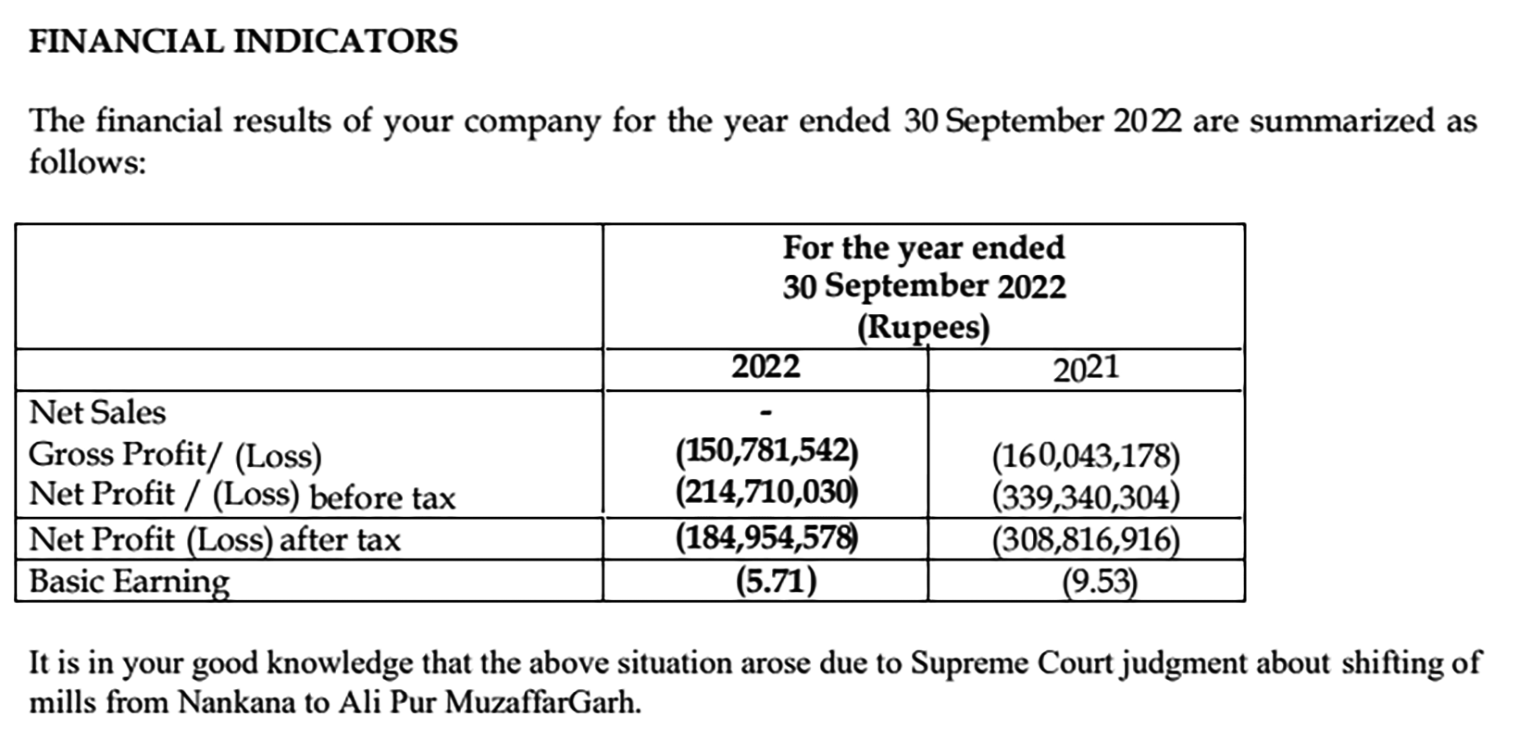
But by this point mills were facing a problem. Pakistan’s sugarcane was uncompetitive. Production was low compared to the global average yields and so was sugar extract percentage. This meant imported sugar could actually compete with the local product. To counter this, government policies placed tariffs on imported sugar and even banned it while giving subsidies to local sugar mills. As a result, the number of mills grew and so did the number of farmers growing sugarcane.
In fact, the number of mills grew at such a rate that the government eventually had to stop giving licences because of capacity maximisation issues. Through political patronage and protection through tariff and non-tariff restrictions on imports and generous subsidies, Pakistan went from 41 mills in 1987 to 91 by the mid-2000s before a ban was placed on the establishment of new factories due to excess installed capacity.
During this era in particular the Sharif family was prominent in entering the sugar mill business. They started with the Ramzan Sugar Mills and continued on to establish Ittefaq Mills and many others. There was a crucial difference however. In the beginning, many of the mill owners had also been farmers. The Sharifs were hard-boiled industrialists with not a single green thumb in the entire family. This was also part of a rising trend of non-agriculturalists with political clout entering the country’s sugar industry. If one were to believe what was said in those days, the annual profit from one sugar unit in that period used to be more than enough for setting up a new one.
Of course, the problem was that most of this was a bubble. The fact that Pakistan’s sugarcane was uncompetitive was going to catch up with the mills at some point or the other. And that is when all of these sugar barons playing politicians were going to go to war with each other.
The war begins
Now we fast forward. Up until the early 2000s there was no restriction on establishing a new sugar mill. However, around 2005 the government of Punjab decided that new mills could not legally be established. One reason for this was that a lot of the mills coming up were being set up in South Punjab near Muzaffargarh. This was a major part of Pakistan’s cotton belt — which the country’s largest export oriented sector, textiles, relied heavily on.
The other reason was that many of the South Punjab mills wanted to protect their turf. It was becoming clear around this time that sugarcane was not doing well in central Punjab. The region is water scarce and sugarcane is a water guzzling crop better suited for the South of Punjab which has better distribution of water. During the Musharraf administration during the early 2000s, a lot of the South Punjab mill owners were in government and hence lobbied for this. That is until Musharraf went into exile and democracy returned after 2008.
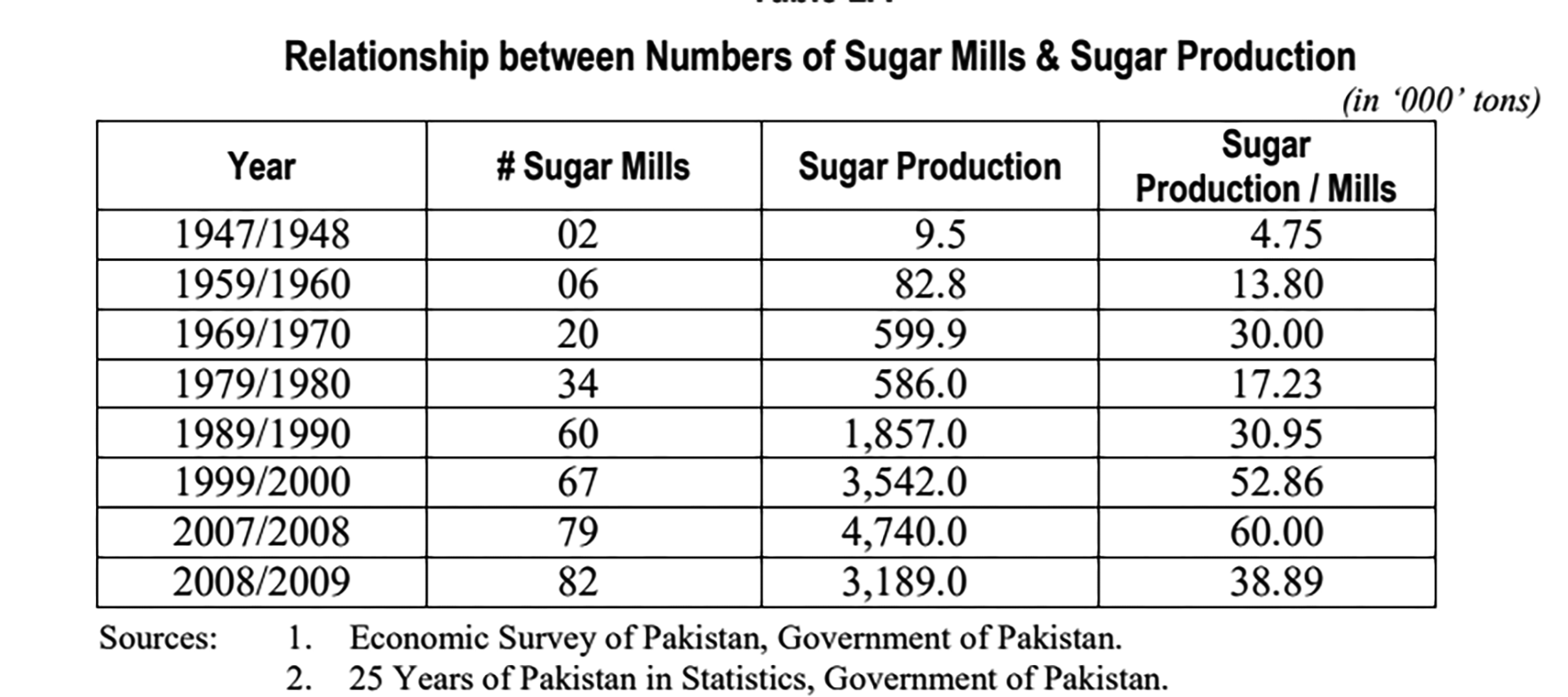
By late 2015, Shehbaz Sharif was solidly into the middle of his second stint as Chief Minister of the Punjab. With a thumping majority in the assembly and a knack for administration the younger Sharif ruled Punjab with an iron fist and he used it to his advantage. This was the time when five central Punjab mills moved operations from here to South Punjab. Ittefaq Sugar Mills Sahiwal, Haseeb Waqas Sugar Mills Nankana Sahib, Abdullah (Yousaf) Sugar Mills Sargodha and Abdullah Sugar Mills Depalpur shifted to regions such as Muzaffargarh and Bahawalpur. All of the mills were associated with the Sharifs.
JDW Sugar Mills, owned by former Pakistan Tehreek-i-Insaf MNA Jahangir Tareen, and others filed petitions against shifting of the mills. Chief Minister Shahbaz Sharif was also made party in the petition. The legal argument here was simple. The five mills claimed that they were not establishing new mills in South Punjab but were simply relocating existing mills to this region. The Tareens and others scoffed at this loophole claiming it was equivalent to establishing a new mill which was not allowed.
By October 2016 Justice Ayesha Malik, then of the LHC, stopped close relatives of Prime Minister Nawaz Sharif and his brother Punjab Chief Minister Shahbaz Sharif from shifting five of their sugar mills to new locations. The problem was that the Sharifs had already moved their mills and started the new ones in the Southern districts. Ittefaq Mills had shifted to Bahawalpur, Haseeb Waqas had gone to Muzaffargarh, and Chaudhry Mills had shifted to Rahim Yar Khan.
All of these mills were now set up but not operating. So what was to be done with them? The case went to the Supreme Court from here when the Sharifs appealed the decision of the LHC. The Supreme Court also struck down the appeal in 2018 ordering the mills to immediately move back to their original locations. “We do not find any merit in these appeals, consequently the petitions are dismissed,” announced Chief Justice of Pakistan Mian Saqib Nisar while closing the hearing of the appeals moved by Haseeb Waqas Sugar Mills Ltd, Chaudhry Sugar Mills Ltd and Ittefaq Sugar Mills.
By 2019 a review petition in the Supreme Court was also rejected and it seemed that the fate of these new mills was sealed — that fate being they would be sealed forever either to collect dust in anticipation of court relief or be converted for some other business venture.
Of all the sugar mills listed, the best illustration of their business woes can be gauged from Haseeb Waqas because it is a publicly listed company. Their latest annual report chronicles the state of the mill and the heavy losses they have suffered because of their mills being out of operation.
“It is in your good knowledge that the above situation arose due to the Supreme Court judgement about shifting of mills from Nankana to Ali Pur MuzaffarGarh,” reads the report. “The financial statements of the Company indicate that during this year, the Company incurred gross loss amounting to Rs.15 crores and net loss from operations amounting to Rs.3 crore and accumulated losses Rs.42 crores. Moreover, the current liabilities exceed current assets by Rs.378 crores.”

At the same time, however, the report seems hopeful. And not just corporate hopeful — genuinely hopeful. Indicating perhaps that with the change in political realities in the country, a truce might be in the offing as well. “We would like to inform you that there has been developed a positive scenario regarding the operations of the mills at its existing current location that is MuzaffarGarh. Recently the Punjab Provincial Assembly passed “The Punjab Industries (Control on Establishment and Enlargement) Amendment Act 2002 which after getting assent of Governor of Punjab on November 11, 2022 published as an Act of the Provincial Assembly of Punjab on November 14, 2022.” So what were they playing at?
The agriculture part of the equation
Let’s pause here for a second. What we have here up until now is that over the years the sugar industry has flourished under the watchful eyes of its political parents. In 2016, a major disagreement arose between major mill owners and sugar barons over the location and relocation of certain mills. Court cases dragged on and the mills under controversy remained closed.
But away from the politics, how good or bad is the sugar mill business for Pakistan’s agriculture? On the one hand one of the major issues raised over the relocation is that the mills would be moving to cotton districts. The battle between the delicate white lint of cotton and the sugary sweetness of sugarcane is an unexpected but harsh one. Over the past two decades, however, cotton has taken a backseat with farmers shifting in droves towards growing the more profitable but water-guzzling sugarcane. Cotton has fallen out of demand, become internationally uncompetitive, and output has fallen by a whopping 65% from 14 million bales being produced in 2005 to 4.9 million bales being produced in 2023.
Cotton producers are losing interest and prefer crops like sugarcane and paddy while the government continues to be disinterested in reviving cotton. Sindh has seen growth in the sugar industry in cotton-growing areas, especially in Ghotki, where five sugar mills have been set up.
In an earlier interview with Profit, the son of Jehangir Tareen, Ali Tareen, had also agreed that a lot of farmers were shifting from cotton to sugarcane. The reason behind this, of course, is that sugarcane is much more profitable. Because the mills are around farmers, they have someone to sell to, unlike when they grow the cotton crop which is susceptible to disease and harder to sell.
“Rahim Yar Khan used to be a cotton growing area when we set up our mill,” says Ali. “Now it is the biggest sugarcane producing area in the region. That is because we came in and said from the get-go to the farmers that our goal is to have you grow lots of sugarcane for cheap and sell it to us at high rates. Before this, the relationship between the sugar mills and the farmers was that the mills would squeeze the farmers. Eventually, the farmers would simply stop growing sugarcane. And that’s why we provided cash loans, we gave seeds, we held training and sugarcane yield has never been higher,” Tareen told Profit in the earlier interview.
This is another issue. While water scarcity is an issue in central Punjab, many of the mills there had also gotten a bad reputation with farmers. The mills would make the farmers cue for hours to sell their crop and would not pay them on time. Deferred payments actually became a major bone of contention between farmers and mill owners.
But generally, sugarcane is a much safer bet than cotton. It is no wonder then, that sugarcane is seen as a ‘better’ alternative. Not only is it sturdier in the face of fluctuating weather, it requires less manpower in the fields. Revealingly, the sugar industry also enjoys the patronage of political elite and influential landowning families, and is therefore able to secure favourable policies.
The truce
And this is where we come back to politics. When the Supreme Court rejected the review petition on behalf of the Sharifs’ mills it seemed to be a case of game-set-match. The mills would now have to move back to their original locations and the new buildings would have to be converted for some other business.
But the Sharfis were not going to give up that easily. This is how events played out:
In mid-2021, a year after getting the final no from the SC, the mills decided to try again. They filed an application before the director general of industries, prices, weights and measures of Punjab under section 3 of the Punjab Industries (Control on Establishment and Enlargement) Ordinance 1963 for the relocation of Ittefaq Mills to Bahawalpur. Except this time they went with a different claim: they wanted to set up a “new” mill.
Even though the establishment of new mills was not allowed, this rule had been changed in 2016 when the relocation issue came to the forefront. Suddenly the case was a new one. While the relocation had been outlawed already by the SC, the Sharifs said instead of relocating they just wanted to set up new mills in South Punjab. Of course, at the time the PTI was in power in Punjab and Usman Buzdar was Chief Minister. The Punjab government immediately went to The DG of Industries rejected the request citing the very clear decision of the Supreme Court on the issue but this was exactly the opening that the Sharifs needed.
In October 2021 the Sharifs went back to the LHC against the DG’s decision which allowed a petition of Ittefaq Sugar Mills and set aside a decision of the director general (industries) with a direction to it to process the mills’ case further for the establishment of a new unit.
The case was successfully back in the courts. The Punjab Government also wanted to nip this second attempt in the bud and went straight to the Supreme Court against the LHC’s decision to allow the plea claiming it was against the SC’s original 2019 order. The SC was clearly feeling slighted and took it up. The matter was now once again in the SC with the Punjab government fighting back. And that’s when things started to change.
In November 2021 the SC took up the Punjab government’s case and hearings began. The case stayed in the court for a while until around July 2022. This was around the same time PTI Chairman Imran Khan was removed from the office of Prime Minister through a vote of no confidence.
On the 30th of April 2022, Hamza Shehbaz briefly became Chief Minister of Punjab. The reigns were suddenly back in the hands of the Sharifs. At the same time, they had come to power with the backing of the PPP which meant its leaders such as Zaka Ashraf were now also on the same side as the Sharifs. The PTI’s former leader Jehangir Tareen also ended up not just parting ways openly but also allying his faction in the Punjab Assembly with the Sharifs. He has also recently announced his new political party — the IPP.
But something even more interesting happened at this point.
On the 27th of July 2023, barely three months after Hamza Shehbaz took over as CM, his election was declared illegal and a new election was held that brought Pervez Elahi to power. Elahi joined the PTI and was a bitter enemy of the Sharifs at this point so one would have expected him to thwart their attempts to circumvent the Supreme Court’s 2019 order. But Elahi himself has deep interests in sugar and the Chaudhry family has multiple sugar mills in central Punjab. It was in their interest also to allow the expansion of sugar mills to South Punjab. In November 2022, weeks before he dissolved the Punjab assembly, Elahi’s government through a notification allowed the shifting and expansion of sugar mills.
This was an opening for the Sharifs. Almost immediately after that Mohsin Naqvi took over as Chief Minister in a caretaker capacity. Once all of this added up, things were set for the Punjab government to take back their case in the Supreme Court.
On the 11th of February this year, the Supreme Court adjourned further hearing of petitions filed against the transfer of sugar mills to cotton areas till February 28. A three-member bench — comprising Justice Ijaz ul Ahsan, Justice Munib Akhtar and Justice Sayyed Mazahar Ali Akbar Naqvi — heard the case against permission to establish and relocate sugar mills in cotton growing areas. During the course of proceedings, the Punjab government pleaded the court to withdraw the petition. The Supreme Court expressed annoyance over the Punjab government for withdrawing the case against the sugar mills.
To summarise, the Sharifs went back to the LHC to raise a new legal point and their petition was allowed. To oppose this, the PTI Punjab government went to the SC. Now, after the government is under different control, it has taken back the complaint it made earlier in the SC.
The Supreme Court expressed annoyance over the Punjab government for withdrawing the new case against the sugar mills. Justice Mazahar Ali Akbar asked why the provincial government wanted to withdraw the case. The Punjab Industries and Commerce Department representative replied that the problem of transfer of sugar mills had been resolved as permission had been given to the mills.
This permission was now labelled permission for a “new” mill instead of for a relocation which meant the SC’s old order could technically be flouted. Essentially, things have now returned to how they were in 2016 — with the Punjab government allowing the shifting of the mills, and since they have already been built they will begin operations and have already. Even though the Punjab government is under the control of Mohsin Naqvi as caretaker, it is an open secret that many matters in Punjab are run from Islamabad. On top of that, there is also no one there to oppose it.
Lost in all of this is the question of agriculture. What will happen to the cotton crop? How bad is the water guzzling sugar crop for Pakistan’s water scarcity problem? And will the sugar industry ever be released from the shackles of political engineering?


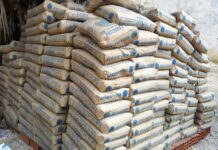



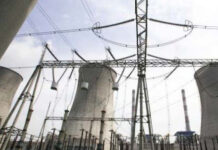













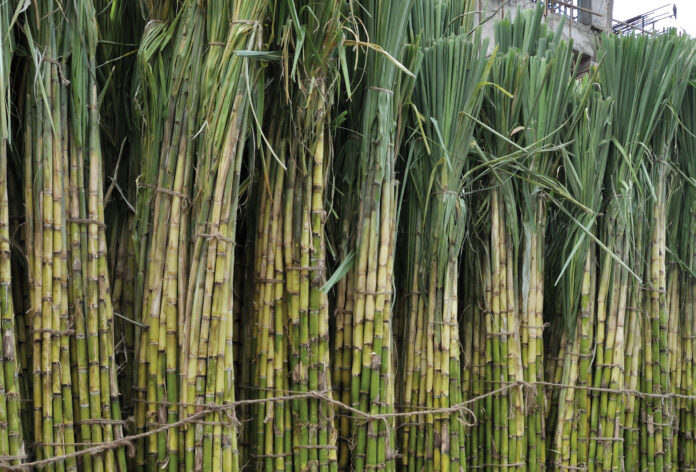





Excellent article. Overall what a shamefull scenario. Total failure of policy and governance. Political influence all around and in courts. If there is a policy against relocating then the courts should uphold those policies in the overall interest of the country. I dont think things are likely to improve anytime soon. All subsidiaries should be removed from the sugar business and let these robber barons try to compete and survive. that is another way of dealing with this mess. I cant believe that there is subsidy for exporting, clear disaster. If these folks cant compete somebody else will. All protections must end for sugar and the car and textile industry. all these people have gotten rich while the county has been reduce to begging,
My name is Castro, an expatriate living in Maryland, USA. Am so overwhelmed with gratitude to let the world know how CYBER GENIE. A great cryptocurrency recovery expert who changed my life for good. It all started when I lost my job and I was down financially. Investing in cryptocurrencies is a good idea, but when I first started, I made a mistake and invested in the wrong company, which took over $179,000 from me. It was a terrible time, and I was in need of help recovering my crypto funds as I wasn’t even able to provide for my two kids because I had invested wrongfully and had no job or any more savings. I saw a series of testimonies by people on how they were assisted by Cyber Genie. I honestly didn’t believe it, but after noticing that these testimonials are from different parts of the world, and being poor with lots of debts and a family to care for, I had no choice but to give them a shot. I consulted them for assistance, they ruled out their working terms, and we agreed and they commenced working. Please get in touch with this crypto recovery expert if you had invested wrongfully with a fake crypto broker or investment website. I am writing this testimony to express my utmost gratitude and satisfaction with the exceptional services provided by Cyber Genie Recovery Expert. Their expertise and dedication resulted in me recovering my investment and profits at the same time after months of pleading with the cocky broker to let me have access to all I had sent. Their info are: [ CyberGenie(@)CyberServices.C OM ][ Whatsapp, + -1 -2-5’2’5-1-2-0’3-9’1 ]
There are many many factual inaccuracies and I can help Abdullah Niazi clear them.
Such an excellent and well researched article.The mefia should pay attention innraising awareness in the masses about such cases that directly effect the economics of our country. L
excellent insight on the sugar industry
Banning new mills or relocating mills is totally unfair and against market competition, all people have rights to have mills.
Cotton vs Sugarcane
Cotton is A DESERT PLANT and it does not like too much water, so it should not be cultivated in water abundant areas, while sugar cane is more suitable for these areas as it is the most efficient plant, if in central Punjab there is shortage of water, then cotton should be grown in these areas.
Niazi tried hard to grill Sharif as much as possible but Restricted criticism on Chaudhry Pervaiz elahi & Co to 2 lines only. 😄 🤣